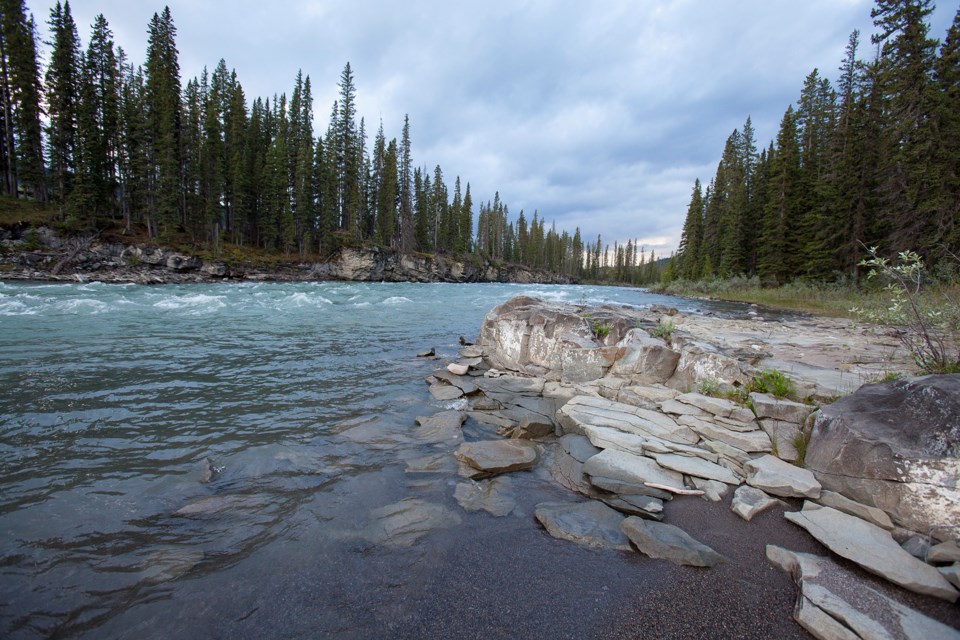SUNDRE – For the time being, Town of Sundre officials have once again opted against taking a stance on the provincial government’s controversial decision to reverse a previous commitment not to allow new or expanded coal mining operations on the eastern slopes of the Rocky Mountains.
The matter was discussed during the regular March 10 council meeting when correspondence from Mountain View County resident Karen Tubb was accepted for information.
In her letter that was dated March 3 and addressed to Tiffany Nixon, a county councillor, and copied to other county council members as well as the Town of Sundre, Tubb wrote to express “concern over the recent decision by the Alberta government to lift the ban on coal exploration on the Eastern Slopes of the Rocky Mountains.”
She outlined six reasons:
• The risk of selenium contamination and how “despite what coal companies claim, there is no successful method to remove excess selenium from water;”
• Water scarcity in a semi-arid province where headwaters and water tables stand to be impacted by water-intensive operations involved in coal mining;
• Potential air pollution from proposed mines in Crowsnest and Bighorn areas that are situated in Chinook wind belts with intense winds that could increase respiratory risk due to significant dispersal of small particulate coal dust;
• Environmental damage due to the destructive nature of coal mining that will irreversibly alter ecosystems and habitat for already-stressed wildlife;
• The economic risks of the boom and bust nature of mining, which overestimates jobs, taxes and royalty payments while failing to take into account costs to the province for reclamation and ongoing selenium mitigation after mine closures;
• And the loss of sustainable industry and tourism, popular camping, hiking, fishing and hunting areas along the Eastern Slopes and Bighorn areas would be closed and irreversibly altered with open pit mines.
“What about the importance of safeguarding our pristine landscapes?” wrote Tubb, who implored Nixon to stand in solidarity with other municipalities that have already spoken out.
“May I be confident that you and the other Mountain View County councillors will join with municipalities like Lethbridge, High River, and MD of Ranchlands in expressing grave concerns over the lifting of the coal ban and enjoining the province to reverse this decision?”
Coun. Jaime Marr said the letter’s content had captured her interest.
Even if the correspondence was not written by a Sundre resident, “I also see how this can affect us,” said Marr.
Council may not know all there is to know about the issue, but she said water is among the municipality’s strategic priorities.
“The current provincial government has some standards set out, which I think are lovely personally,” she said.
“But I am curious that the questions that this letter brings up. I’m also curious to know what’s going to be done,” she said, adding council can sometimes act as an advocate and currently has a good relationship with the county.
“I don’t know if there’s a role to play.”
Matter brought to council in 2021
Coun. Paul Isaac, who was on the last council that in 2021 opted against taking any action following a delegation that had also raised concerns, said the matter of coal mining “was a hot topic in Alberta, and at the time it was Jason Nixon’s portfolio.”
Multiple municipalities had stood opposed to any proposal to allow the expansion of coal mining, he recalled.
“As council at that time, we all received requests to work with those municipalities in support of not allowing the government to do that,” the councillor said, adding he’d personally received phone calls from counterparts in other municipalities seeking support.
MLA Nixon, who was the then-minister of Environment and Parks, had during a video conference meeting amid pandemic restrictions “affirmed this would not happen,” said Isaac, adding there has been extensive discussions about coal.
“However, there is a lot of money to be made,” he said.
“There were companies that have lots to gain from a financial perspective should coal mining come back,” he said.
“Government at the time had fairly strict rules that these organizations had to have. (But) the information that was coming to us (was) that even regardless of the restrictions, not all the companies follow these,” he said. “I think it is serious if it damages our water, which I believe it can.”
Coun. Todd Dalke said it’s not council’s place to take a position on such an issue.
“We would need far more information,” said Dalke.
Recognizing the municipality’s responsibility to its residents and industry to ensure future viability, the councillor also cautioned that a case could for example potentially be made against logging.
“I’m not saying I want a coal mine,” he said.
“(But) maybe the right projects at the right sizes are OK in certain places,” he said. “We don’t know enough yet to take a ‘no’ stance.”
Coun. Owen Petersen said he appreciated Tubb’s letter and said the issue “needs to be kept in the discussion and not just pushed under the rug.”
Acknowledging there’s a limited role for council to play, Petersen also recognized the potential impact on the municipality should there ever be an issue of contamination on the headwaters that feed rivers like the Red Deer that Sundre depends on.
“And then we’ll have a lot to say,” he said.
Mayor Richard Warnock said the municipality will have more opportunities to speak up as the issue becomes more prevalent, and that for now it was a matter of accepting Tubb’s letter and perhaps discussing the matter further at a strategic planning workshop.



